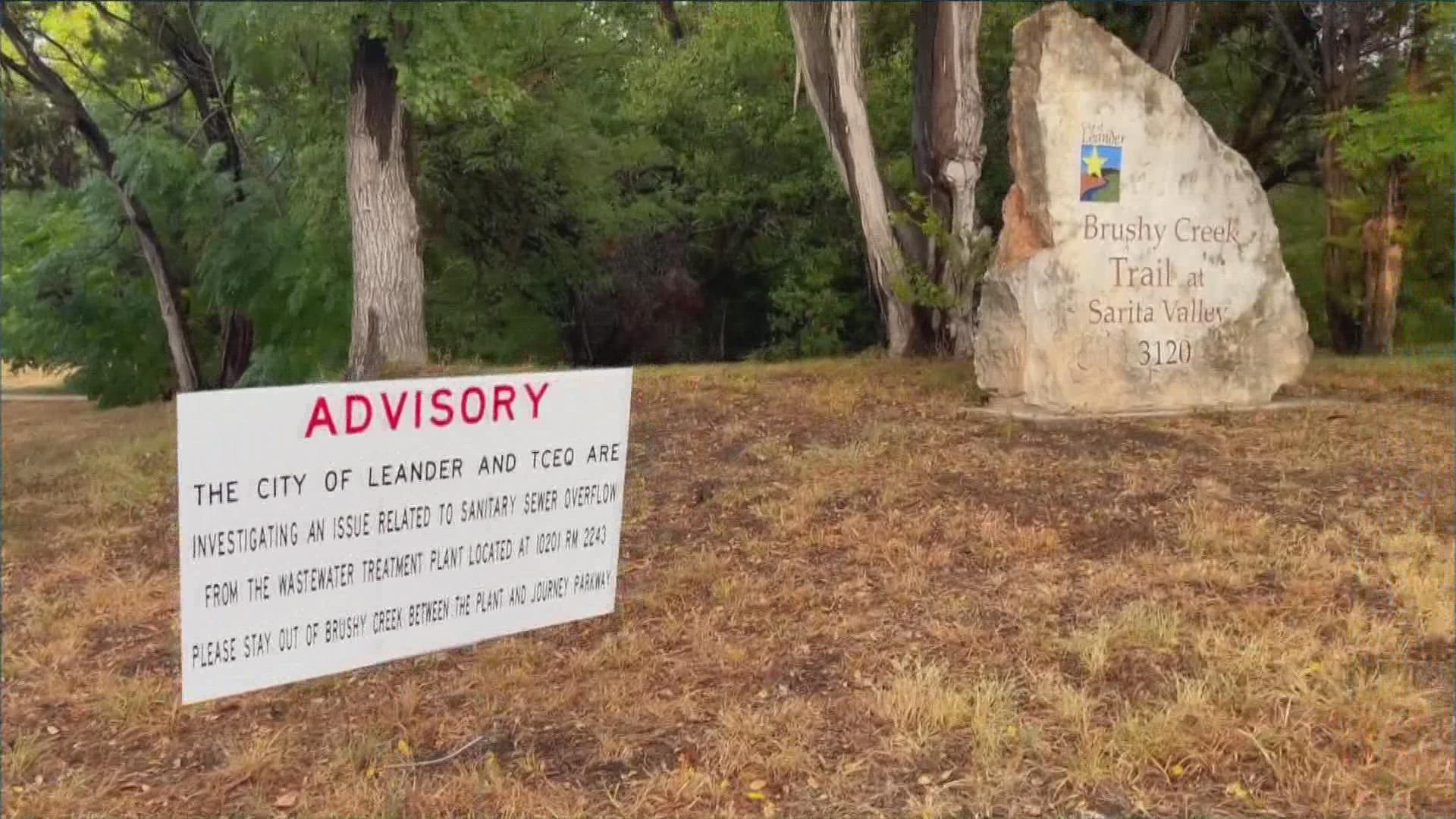LEANDER, Texas — Leander officials on Thursday reported an effluent, or waste, discharge into part of Brushy Creek. During the construction of planned improvements at the Leander wastewater plant at 10201 RM 243, waste from the plant was inadvertently discharged into Brushy Creek.
An estimated 4.5 million gallons of "unauthorized effluent" was discharged into the creek from the plant's outfall location between Aug. 15-17. The discharge happened after one of the plant's basins was temporarily disabled for construction.
The amount spilled is in excess of the limit set by the Texas Commission on Environmental Quality. TCEQ officials notified the City of the damage to aquatic life in Brushy Creek near Journey Parkway the afternoon of Aug. 17.
The area affected by the sewage overflow extends along Brushy Creek from the wastewater treatment plant to Journey Parkway. The City reported that signs have been placed in prominent areas along the creek to notify the public.
Property owners of privately-owned drinking wells within half a mile of the affected area will be notified in person, the City said.
City officials also said they are working with the TCEQ on remediation activities, involving cleanup of creek areas over the next few weeks.
RELATED: Leander, Cedar Park affected by underwater leak in pipeline that brings water from Lake Travis
Construction activities are still ongoing and contractors are working to restore plant operations to normal working conditions.
In the meantime, the City issued several precautions as required the State of Texas:
- Persons using private drinking water supply wells located within 0.5 miles of the spill site or within the potentially affected area should use only water that has been distilled or boiled at a rolling boil for at least one minute for all personal uses including drinking, cooking, bathing, and tooth brushing. Individuals with private water wells should have their well water tested and disinfected, if necessary, prior to discontinuing distillation or boiling.
- Persons who purchase water from a public water supply may contact their water supply distributor to determine if the water is safe for personal use.
- The public should avoid contact with waste material, soil, or water in the area potentially affected by the spill.
- If the public comes into contact with waste material, soil, or water potentially affected by the spill, they should bathe and wash clothes thoroughly as soon as possible.
PEOPLE ARE ALSO READING:

